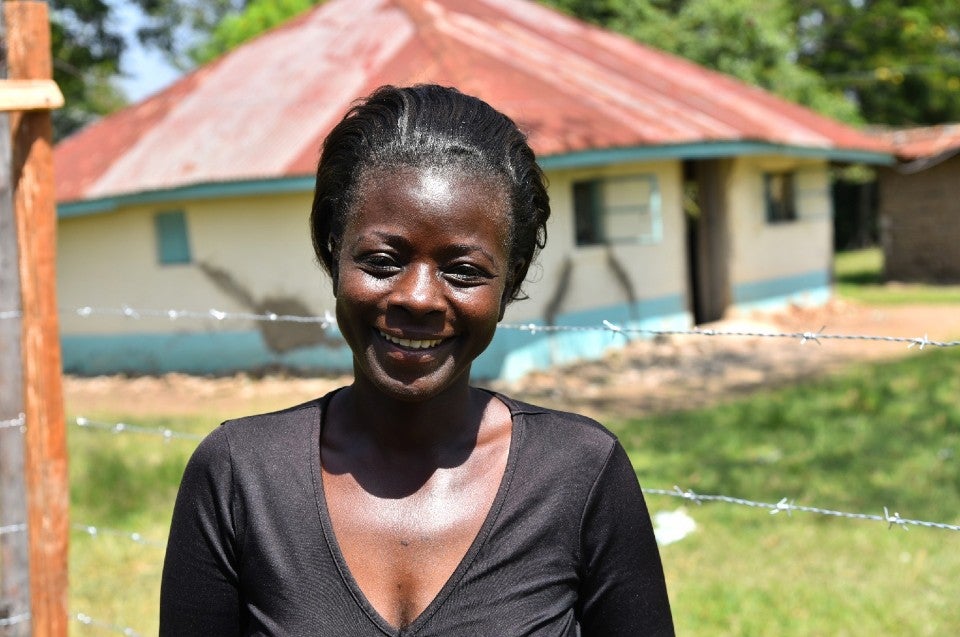Goretti Ondola: A twenty-year struggle for justice
Date:

Land disputes, combined with discriminatory cultural norms place Kenya’s women at high risk of sexual and gender-based violence. Land rights and ownership is a deeply sensitive and contested issue, with disputes traditionally settled by the local community’s elders, particularly away from urban centres. Women who are entitled to land or property rights are often intimidated and threatened.
Goretti Ondola lives in Nyando, a sub-county in Western Kenya, 30km from Kisumu. She married into a Luo family, one of Kenya’s 47 official tribes, at the age of 15. She became a widow three years later.
“In 2001, my husband died. I came back to Nyando to bury my husband, my son’s father. In the local culture, if the husband dies, the widow is still expected to remain in the family’s homestead,” she explains.
Dowries are still commonplace in Kenya, a transaction transferred from the prospective husband’s family to the wife’s family. This can be in both money and livestock. The dowry paid to Goretti’s family trapped her, even after her husband’s death.
“As part of the family you’re expected to live with the mother-in-law, if you don’t have your own property. But they wouldn’t give me food. Everything I came with from Nairobi – clothes, household items – were taken from me and divided between the family.”
In 2004 I tried to start up a life in Nairobi and I returned in 2006 after saving some money. I managed to build a structure and open a hair salon. I was doing well, I was putting food on the table, I was living my own life. I was comfortable, and I wasn’t troubling anyone. I was confused, they didn’t want me here, but the dowry controlled me.”
Goretti spent years facing psychological abuse from the family of her late husband. Towards the end of 2020, the psychological abuse turned physical and she was badly beaten by two of her brothers-in-law. She was forced out of work due to the severity of her injuries and was instructed to seek help by her employer. She was put in touch with Caren Omanga, one of the human rights defenders supported via the UN Women and OHCHR project Let it Not Happen Again, and chair of the local Social Justice Centre.
“The human rights defenders at the centre helped me get to the medical centre and report the case to the local police station. I was not comfortable going to the police. They did not want to support me. When I reported the case, it was difficult to arrest the culprits. They were telling me they didn’t have a vehicle to ago and arrest (them). I also learned that one of the perpetrators had already contacted the police about the case. The perpetrators even wrote an agreement, in my name, to withdraw the case without any terms and that I had forgiven them, not even supporting my medical bills…but I cannot even write,” recalls Goretti.
Caren ensured that all the irregularities reached the local police commander as well as the courts. Wary of both corruption and the need to appeal to the community’s own alternative dispute resolution mechanism (ADR), she knew she would need engagement from community decision makers.
“I was almost arrested when confronting the officer in charge. But I knew the community would be against her, so I started the ADR process as well pushing the case to court. There were a number of irregularities with how the case was handled so I ensured these were made clear to the magistrate and the prosecutors,” says Caren.
Although Goretti is still waiting for a copy of her husband’s death certificate (which she needs to conduct land ownership processes), an agreement was made between both parties that she would be given her own land, with a physical boundary.
“I thought maybe the same things would continue to happen, so I was worried. I was making sure that by 6 pm I was locked in my house. During the night I couldn’t come out of the house. I felt very insecure,” she says.
“It is like beginning a new life after 20 years, and my son is even more secure. During the day he would disappear to avoid being beaten. Now I’m thinking of planting some trees to safeguard the plot and building a poultry house. In the home, I want a kitchen to make life a bit more comfortable,” says Goretti.